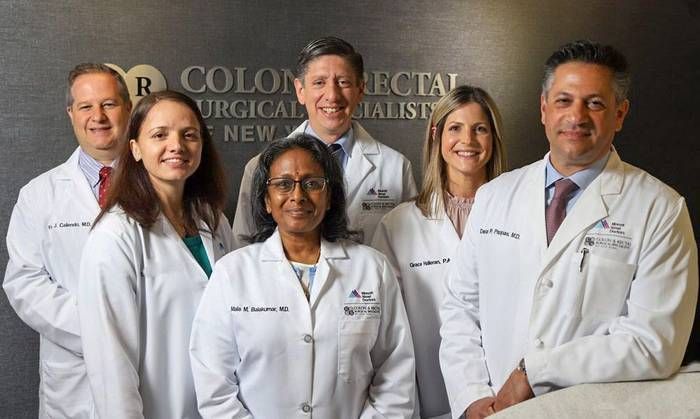BY DEAN PAPPAS M.D.
Patients all over Long Island know that they can trust the team at Colon & Rectal Surgical Specialists of New York with their health. We offer professional, discreet care of multiple colorectal conditions and diseases. This includes sexually transmitted diseases (STDs).
We’d like to take a moment to consider treatment for STDs contracted through anal intercourse. We’ll start with herpes as it is one of the more well-known STDs, and then cover other potential STDs and how they can be successfully treated, managed, and prevented.
About Anal Herpes and Warts
Anal herpes (anal warts) are related to the herpes family of viruses. Anal herpes is the result of the herpes simplex virus (HSV), particularly HSV-2 or HSV-II. This differs from HSV-1, which is the virus that most commonly causes oral herpes.
Anal herpes can potentially cause serious pain and discomfort. These warts and growths need to be removed since they can grow in size. Left untreated, anal herpes can increase your risk of developing colorectal cancer. HSV-2 is contagious and can be spread by multiple partners through sexual contact.
Signs and Symptoms of Anal Herpes
The primary indication that you have contracted anal herpes are growths and blisters around the anus. These may take the form of small red or white bumps at first. These growths can multiply and enlarge, potentially covering the entire anal area. While unsightly, anal herpes may or may not cause discomfort in some patients. Certain patients may notice the growths cause itching, and the growths have been known to bleed or discharge mucus in some cases.
Other Sexually Transmitted Diseases That May Affect the Anus
In addition to anal herpes, patients should be aware of other STDs that can affect the colorectal area.
- Syphilis – A bacterial infection, syphilis contracted through anal intercourse may result in rectal pain, spasms during bowel movements, and sores or growths that can be unsightly and uncomfortable.
- Chlamydia – A bacterial infection, chlamydia conducted through anal intercourse may cause only mild symptoms, and sometimes no symptoms. Potential signs include pain during bowl movements, cramping, bleeding, and diarrhea.
- Gonorrhea – A bacterial infection, gonorrhea contracted through anal intercourse can cause soreness, bleeding, anal discharge, itchiness, and diarrhea.
Treatment Options for Sexually Transmitted Diseases
Treating STDs that affect the colorectal area will typically involve the use of oral medications to control the condition as well as some degree of surgery if there are growths that need to be removed.
Keep in mind that people who contract anal herpes will require ongoing antiviral treatments to control and suppress outbreaks. The long-term treatment also helps prevent infecting future sexual partners with the disease, though future partners should practice safe sex in order to ensure they do not contract HSV.
How to Reduce Your Risk of Contracting STDs
If you are sexually active, the best way to prevent contracting STDs is to use a condom or a protective barrier of some kind whenever you have sexual contact with someone else. This includes any time you engage in oral or anal sex. Practicing safe sex will dramatically reduce your potential of contracting a sexually transmitted disease.
It is often a good idea for you and any sexual partners to be tested before engaging in sex without wearing protection. Open communication about the results is key for being safe.
Contact Colon & Rectal Surgical Specialists of New York
For more information about your health care needs, it’s important that you contact our team of colorectal specialists today. We at Colon & Rectal Surgical Specialists of New York are here to assist you with any concerns you may have, offering answers and advices to promote total wellness.

